




By Stacy M. Brown
In one of his final acts in office, President Joe Biden posthumously pardoned Marcus Mosiah Garvey Jr., a seminal figure in the civil rights movement, whose advocacy for Black nationalism and self-reliance left an indelible mark on leaders like Malcolm X and movements across the Black diaspora.
Born on August 17, 1887, in Saint Ann’s Bay, Jamaica, Garvey was the
By Al McFarlane Editor
Jamaica and the Caribbean African diaspora reacted quickly and joyfully to the news that outgoing US President Joe Biden issued a posthumous pardon for visionary disruptor and international organizer, Marcus Mosiah Garvey January 19th, in the final hours of the Biden presidency.
A feature news story in Jamaica historic newspaper, The Gleaner, writer Lester Hinds, said, “Community leaders, elected officials, members of the Jamaican diplomatic corps, and organisations in the United States (US) and Canada, have reacted with joy and delight at US President Joe Biden’s granting of a posthumous pardon to Jamaica’s first national hero, Marcus Garvey.”
“This pardon is a culmination of years of diplomatic interventions by the Government of Jamaica and activism by members of the Jamaican diaspora,” said Jamaica’s Ambassador to the United States Audrey Marks.
Marks said members of the diaspora, particularly Congresswoman Yvette Clarke, were relentless in their effort to get Biden to pardon Garvey, thus honoring
son of a stonemason and a domestic servant. His journey to becoming a leader began after traveling to Latin America and studying in London, where he was influenced by Pan-African nationalism. Garvey founded the Universal Negro Improvement Association (UNIA) in 1914, advocating for Black nationalism through African history and cultural celebration. His ambitious efforts included the establishment of the Black Star Line, a Black-owned passenger line designed to facilitate the “back to Africa” movement, and various economic enterprises like
restaurants and shopping centers to foster Black economic independence. Despite facing relentless criticism and legal challenges, including a controversial mail fraud conviction in 1923 that many believe was politically motivated, Garvey’s vision and tenacity spurred a global movement.
Biden’s broad act of clemency also included others like Don Scott, the current Speaker of the Virginia House of Delegates, who transformed a past drug conviction into a catalyst for advocacy in criminal justice reform. Ravi Ragbir, an immigrant rights activist;
Kemba Smith Pradia, a former drug offense convict turned prison reform advocate; and Darryl Chambers, a Delawarean who now studies and writes about gun violence prevention, were also granted clemency. Garvey’s legacy, though marred by controversies, including his interactions with white supremacists and criticism from Black leaders like W.E.B. Du Bois, has continued to inspire countless individuals within the Nation of Islam, the Black Power movement, and the Rastafari movement. Many, including most Congressional Black Caucus members, said Garvey’s posthumous pardon
serves not only as a correction of historical injustices but also as a powerful affirmation of his enduring influence on Black empowerment and self-determination. The White House proclaimed that Biden’s term has been distinguished by a robust commitment to civil rights. Officials said the commitment is evident in significant legislative achievements and proactive executive actions to foster racial equity. His administration pursued an ambitious equity agenda through legislation like the American Rescue Plan and executive orders to dismantle systemic barriers.
Administration o
noted that, as Biden prepares to leave o
ce, his record on equity and justice, marked by these recent pardons, is further proof of his unwavering dedication to build a more inclusive America. They said Garvey’s
that continues to
determination among
and

By Brett Buckner, managing director of onemn.org and Minneapolis Community Activist
Through life experiences and relationships, it’s hard not to cross paths with people who’ve been impacted by the opioid crisis. Maybe they themselves dealt with opioid abuse or perhaps have lost a family member to the epidemic. No matter the case, it’s clear that the crisis, initially fueled by the false promise that prescription opioids were safe, continues to plague our nation and our state.
As the managing director of OneMN, a coalition of organizations and individuals dedicated to racial, social, and economic equity in Minnesota,
I am consistently reviewing policy that helps us achieve our goals.
We have a health equity issue not only in our country, but here at home in Minnesota which is especially evident in opioid overdose deaths. Across the board, regardless of race, opioidinvolved deaths increased 43% from 2020 to 2022. If you dig deeper into the crisis, compared to White neighbors, Native American Minnesotans are dying nine times more while Black Minnesotans die over three times as much per capita.
To address this health equity issue, we must consider and adopt a variety of solutions.
The Alternatives to PAIN Act, a bill currently being considered by Congress is a part of the equation to limiting the wake of devastation. This
bipartisan legislation would ensure that seniors on Medicare
Part D – of which there are 52 million – are offered non-opioid pain management options as alternatives to opioids. The bill ensures that should a senior elect a non-opioid alternative to treat their pain, they wouldn’t pay a penny more than they would for traditional opioids.
When enacted, the Alternatives to PAIN Act wouldn’t bar the prescription of these drugs. Instead, it would merely give seniors the choice to choose non-addictive nonopioids with no cost barriers.
While seniors may not be the demographic you think of when discussing the opioid crisis, they certainly have felt the effects. In 2021, over one million seniors were diagnosed with an opioid use disorder. In that same year,
more than 50,000 seniors suffered an opioid overdose from prescription opioids, illicit opioids, or both. Unfortunately, opioid overdoses among seniors is only becoming more common. Over the past decade, overdose rates have soared more than 60%. Our seniors are dying from the opioid crisis at alarming rates.
To curb this trend, we must pass the Alternatives to PAIN Act. This bill would give us the chance to prevent addiction before it can begin by giving seniors an alternative to addictive opioids. Often, we pass reactive policy to address issues, but this legislation is an opportunity to pass proactive policy that can prevent health crises for our seniors.
In a political period where collaboration between Republicans and Democrats is

hard to come by, this legislation has been cosponsored by 76 members of Congress across the two bodies with broad bipartisan support.
Given the bill’s popularity, it’s time that we pass this commonsense legislation and give seniors access to safer alternatives to treat pain.
I call upon our Minnesota congressional delegation to cosponsor this legislation and deliver solutions for our state’s seniors, especially seniors of color.
Brett Buckner is the managing director of onemn.org and Minneapolis Community Activist

By
January 20, 2025 began with hope. Like thousands of Minnesotans, I joined in celebrating the legacy of Dr. Martin Luther King, Jr., a man who envisioned a nation that could rise above its divisions and become a beacon of justice and equity. The morning was filled with music, poetry, and the shared purpose of honoring the extraordinary ideals of justice and equality. But as the day unfolded, the stark contrast to these ideals became clear. A few hours later, Donald Trump, a convicted felon who has evaded accountability, stood in the heart of American power to take the presidential oath of office. No hand on the Bible, no acknowledgment of the moral weight of leadership, just the triumph of privilege.
The contrast between a day, 24 hours, celebrating the legacy of Dr. Martin Luther King Jr. and watching the
inauguration of Donald Trump as President of the United States could not have been more profound. On one hand, we honored the memory of a man who challenged America to live up to its highest ideals, a man who gave his life for justice and equity. On the other, we witnessed the return to power of a leader whose actions and rhetoric have consistently undermined those very ideals.
As time ticked by on Monday, I found myself diving deep into Dr. King’s “Letter from a Birmingham Jail”. It remains one of the most powerful moral indictments of injustice. Written from confinement, it was a direct response to those who urged patience in the face of oppression. In the letter, King offers a profound meditation on the nature of time: “Actually, time itself is neutral; it can be used either destructively or constructively. More and more I feel that people of ill will have used time much more effectively than have the people of good will.”
As I read King’s words, I realized they were a call to action for Americans in 2025, a reminder that progress is not inevitable and justice does not arrive on its own. “We must
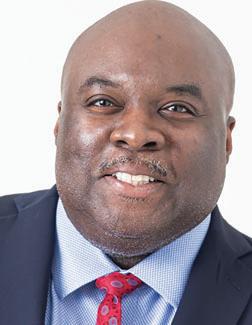
Typically, January 20th— the federal holiday honoring the life of Dr. Martin Luther King—is a welcome respite from the vicissitudes of life that reminds us to heed the higher calling of our inner spiritual and intellectual natures.
But every four years, January 20th is also the federally mandated Presidential Inauguration Day and today, to the delight of some and chagrin of others, Donald Trump will join Grover Cleveland as the only two American presidents to lose an election and return to the White House in triumph.
There is a twisted sense of irony that Trump, easily the most intentionally divisive American political figure of the past forty years, is being sworn into office on a day that honors a man who literally gave his life to bring people of all races, cultures, and creeds together in unity. As one who survived Trump’s first term, I have seen no evidence whatsoever that he has had a Saul on the road to Damascus experience and will become a stable, unifying figure in domestic or foreign affairs; thus, I expect more of the same vicious and ignorant daily attacks on political enemies and all who refuse to bend the knee to the MAGA throne.
But I will note that we, the people, did survive Trump and his boorish nature

use time creatively,” he urged, “in the knowledge that the time is always ripe to do right.” His message was clear: justice delayed is justice denied. This message stands in stark contrast to the events surrounding Trump’s inauguration. Trump’s speech, framed as a vision for a “colorblind and merit-based” society, instead served as a signal to preserve systemic inequities. Trump declared his intent to end what he called “the government policy of trying to socially engineer race and gender into every aspect of
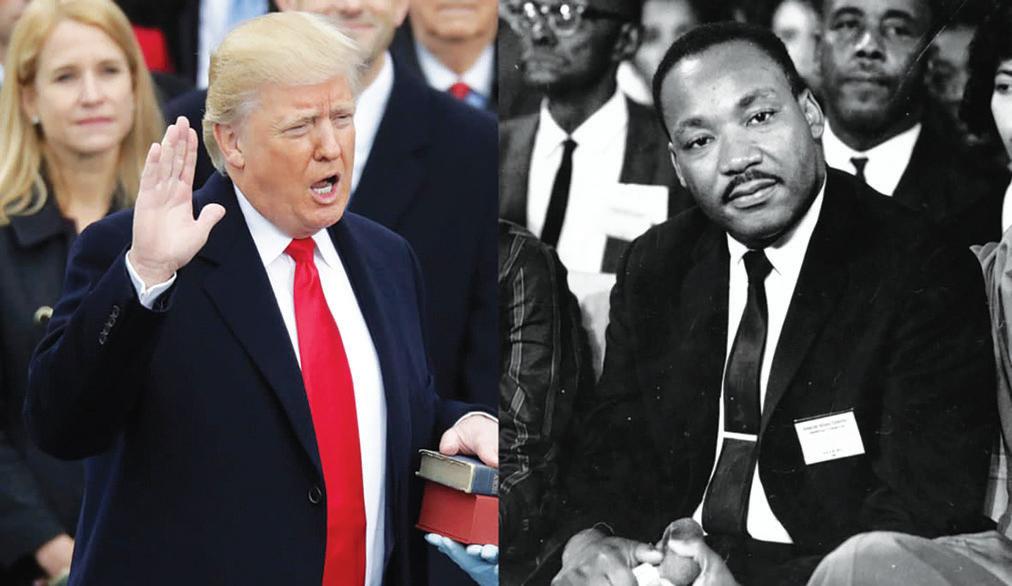
from January of 2017 to January 2021 and that we shall survive again! Trust, I have nothing but love and respect for each of my kin, friends, and followers who have indicated that they are tapping out from the media matrix in the days ahead to protect their internal peace from Trump and his minions—to paraphrase R&B legend Ralph Tresvant, “do what you gotta do!”
But in providing a glimmer of hope this bitterly cold winter morning, I offer the words of fellow journalist Ezra Klein, who reminds that winning office and governing are mutually exclusive: “Even where the Trumpist right can find common ground, the narrowness of Trump’s victory will matter once he has to govern: House Republicans will need either near-perfect unity — which looks, so far, unlikely — or they will need Democratic votes to pass anything. Senate Republicans will face the frustrations of the filibuster. The routine paralysis and compromise of politics will feel like betrayals to many of Trump’s supporters. Governing is a buzzkill. And Trump is as he has always
been: disinhibited, erratic, obsessed with loyalty and grievance, and quick to turn on those who question him.” Yes, there will be many tough days ahead. Yes, there will be some policy losses that burn us as individuals and those that we love or care about. But eventually, this— the humanistically repressive MAGA Movement—shall pass and it will be up to those of us who have a clear idea of what America should be to tailor a government that›s far better functioning, inclusive, and encompassing than the one we will experience over the next two to four years. As always, the Hobbservation Point will be right here chronicling, critiquing, and creating a safe space for the exchange of ideas and ideals for a better future! Stay tuned… Hobbservation Point is a reader-supported publication. To receive new posts and support my work, consider becoming a free or paid subscriber. Chuck Hobbs is a freelance journalist who won the 2010 Florida Bar Media Award and has
public and private life.” This rhetoric denies the very history of America, a nation whose laws and systems were designed to privilege some at the expense of others, from the 3/5 Compromise to Jim Crow to redlining. Trump’s words obscure these realities, repackaging privilege as fairness while dismantling efforts to address historic inequities. Then as the day moved into evening, one of Trump’s first acts was to pardon over 1,500 individuals charged in connection with the January 6th Capitol attack.

By Simon Burris
These pardons were not merely political gestures but an endorsement of insurrection, a chilling message that the rule of law does not apply equally. In contrast, King wrote his letter from a jail cell because he dared to confront systems of injustice.
While King was punished for advocating equality, Trump’s actions shield those who sought to undermine democracy.
Dr. King’s reflection on time, its neutrality and its misuse, feels especially poignant today. His letter reminds us that people of ill will often wield time to entrench power and privilege, while those striving for justice are too often urged to wait. Trump’s rise to power and his inaugural promises exemplify the destructive use of time. His actions and rhetoric seek to reverse progress and solidify inequities, all while cloaked in the language of unity and fairness.
As Americans celebrated Dr. King’s legacy, they also watched a leader whose vision runs counter to King’s dream ascend to power.
King’s “beloved community” was one where justice and love prevail, where equity is not just an aspiration but a reality. Trump’s vision, by contrast,
seeks to preserve structures of exclusion and privilege under the guise of meritocracy. This juxtaposition forces us to confront hard truths. The stark reality is that justice will not prevail unless we actively work for it. Dr. King’s words remind us of the moral responsibility we all bear:
“We will have to repent in this generation not merely for the hateful words and actions of the bad people, but for the appalling silence of the good people.” Silence, complacency, and inaction are allies of oppression. January 20’s events are a mirror, reflecting two paths for America. Will we honor Dr. King’s call to use time constructively, to act with urgency, and to fight for a future grounded in justice and equality? Or will we allow time to be used destructively, cementing division and inequality?
The choice is ours, and it is one we must make every day. Dr. King’s letter is a plea across time, urging us to recognize that “the time is always ripe to do right.” His legacy demands that we act, not with hesitation, but with courage and conviction. The work is far from over, and neither are we.



By Lisa Kaczke
The 2025 legislative session officially began Jan. 14. House leaders recently released most committee assignments filling the 23 committees and one division with an equal number of DFL and Republican members as the parties have agreed to share control of the body that is presently evenly split at 67-67,

challenges. Each panel will have co-chairs, which were announced before Thanksgiving by caucus speaker-designates — current House Minority Leader Lisa Demuth (R-Cold Spring) and current House Speaker Melissa Hortman (DFL-Brooklyn Park). The House DFL plans


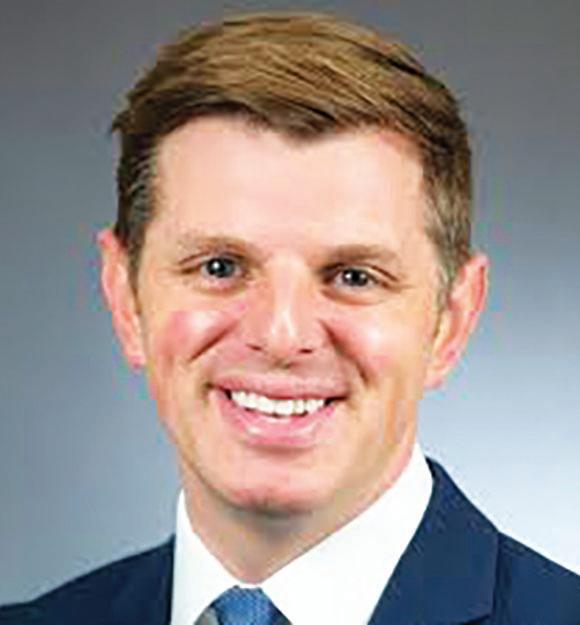
Rep. Byron Donalds (R-FL) stirred up some controversy with some unsettling remarks during a Fox News segment, enthusiastically predicting public approval for Trump’s forthcoming policies. “When Americans see deportations or repatriations happen, they’re gonna be like, ‘Thank you!’
President Donald Trump has unveiled his American priorities, which include measures addressing border security, economic policies, government restructuring, and social values. While the policies aim to bolster what the administration calls “American

values and safety,” they carry profound implications for Black Americans and other marginalized communities.
Border Security and Immigration
The president plans to reinstate hardline immigration policies, including ending “catch-and-release,” reinstating the “Remain in Mexico” program and expanding the border wall.
When they see the border closed, they’re gonna say, ‘This is what I voted for,” Donalds explained. “When they see peace starting to break out again around the world, they’re gonna be like, ‘This is the stability that we were asking for.’ Daddy’s back! And that’s what you’re going to see.” The trend of using the paternal term continued with Rep. Lauren Boebert (RCO), who tweeted, “Daddy’s home!!” alongside an image
of Trump on TIME magazine. Charlie Kirk, founder of the right-wing Turning Point USA, also embraced this narrative, posting, “Dad is home,” next to Trump’s official portrait. MAGA rapper Tom McDonald and comedian Roseanne Barr joined to release a track titled “Daddy’s Home,” where they chant, “We won, you mad, it’s done, too bad, boo-hoo, so sad, now your daddy’s home.” Kid Rock also tapped into this rhetoric at a preinauguration concert, roaring to his audience, “Check the stats, stop throwin’ stones! Straighten up, sucker, ‘cuz Daddy’s home!” Criticism of the language was immediate and severe. Dr. Benjamin F. Chavis Jr., the president and CEO of the National Newspaper Publishers Association and a former NAACP president, criticized the use of ‘daddy’ to describe the president. Chavis declared that Donald’s comment was
“Today hits differently,” says Democratic Texas Congresswoman Jasmine Crockett who decided to observe the National Martin Luther King Jr. holiday away from the 60th Presidential inauguration of Donald John Trump. A large swath of the 62 members of the Congressional Black Caucus who were invited to the ceremonies chose to observe the National King Day away from the nation’s capital. “Today, unlike any King Day before, I’ve truly searched my

soul for his strength and praying for an ounce of his political prowess,” according to the outspoken Texas lawmaker who was a co-chair of the Kamala Harris Presidential campaign last year. The Harris presidential campaign ended in defeat on November 5, 2024, with Donald Trump being named the 47th President of the United States. If Dr. King, a civil rights icon, had lived; he would have been 96 years old on January 15th of this year. The irony of the day honoring the civil and human rights leader is that it is shared with the 60th presidential inauguration ceremony in the Rotunda of the Capitol Building. Historically, the second inaugurations of Presidents Bill Clinton and Barack Obama took place on MLK Day in 1997 and 2013.

There were some democratic hopes that Kamala Harris could

President Donald J. Trump’s first-day executive order to eliminate diversity, equity, and inclusion (DEI) policies across federal agencies and contractors has drawn widespread condemnation. Critics say the move systematically undermines civil rights, economic equity, and decades of progress toward inclusion for marginalized communities. The order terminates DEI considerations in federal hiring, promotions, and contracting. It revokes affirmative action criteria in federal contracting and directs agencies to investigate private-sector DEI practices,

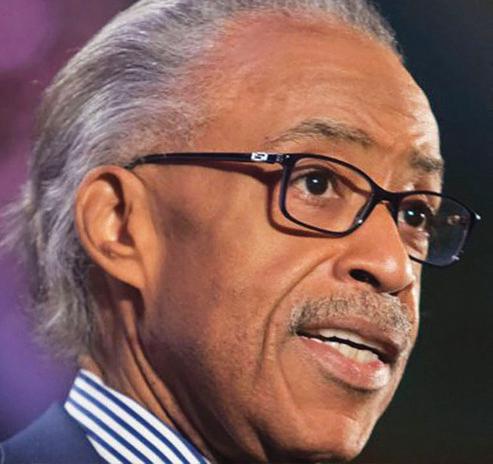
claiming these measures violate civil rights. Trump’s administration heralded the order as a return to “colorblind equality,” but civil rights leaders, labor advocates, and lawmakers strongly disagreed. CBC: “A Step Backward for America” The Congressional Black Caucus (CBC) lambasted
By Dafydd
Donald Trump has been sworn in as president of the US for a second term – and this time there won’t be any arguments about crowd sizes. The most glaringly obvious difference in optics this time round for both those in attendance and the millions watching around the world was the fact this year’s ceremony was conducted indoors. The US has been experiencing significant snowfall and wintery conditions. As guests gathered in Washington DC to see Trump sworn in as 47th US president, the temperature was around -6°C. Trump announced on social media last Friday that the ceremony would be moved to the US Capitol building’s Rotunda. This is not the first time the ceremony has been held there – Ronald Reagan also moved his inauguration to the Rotunda in 1985 because of the cold weather. Looking on was the Trump family – his wife Melania, and his children Ivanka, Barron and Donald Jr. Joining them were many of the former residents of the White House, including Joe Biden, Barack Obama, George W. Bush, and Bill and Hillary Clinton, as well as First Lady Jill Biden and Second Gentleman Doug Emhoff
Michelle Obama and Karen Pence, the wife of Trump’s former vice president Mike Pence, skipped the inauguration.
Amassed inside was an audience of the high and mighty of the American business world, including the leaders of the major tech companies. Elon Musk, who spent US$300 million (£243 million) on supporting Trump’s election was joined in prominent seats by Mark Zuckerberg, Jeff Bezos, Tim Cook of Apple and Sundar Pichai of Google. It was the first time they had all congregated together since the congressional hearings in July 2020 over their companies’ dominance in the tech market. International political leaders do not traditionally attend the inauguration. But this year, Argentinian president Javier Milei and Italian prime minister Giorgia Meloni were invited by Trump. The UK’s prime minister, Keir Starmer, maintained tradition and sent Dame Karen Pierce, the outgoing British ambassador to the US. Boris Johnson, the former UK prime minister and a longtime supporter of Trump, also looked on.
Other audience members included media tycoon Rupert Murdoch and the president of football’s governing body Fifa, Gianni Infantino, as well as leading sportsmen and celebrities such as YouTube influencers Jake and Logan Paul.
The key takeaways
rectification of the unjust conviction of an ardent advocate for the rights and liberties of individuals of African descent.

After swearing his oath, Trump delivered his second inaugural address. He told the nation that “the golden age of America begins right now”. Criticising Biden’s administration, he said he would end “the vicious violent and unfair weaponisation” of the justice department”, and that “the scales of justice will be rebalanced”. “Our top priority will be to create a nation that is proud, prosperous and free”, he added. Turning to immigration, Trump continued his assault on the Biden administration, stating that the Democratic White House had protected illegal immigrants that were “dangerous criminals”. This, he said, had led to a crisis in the nation’s political institutions. “We now have a government that cannot manage even a simple crisis at home.”
To loud applause, Trump said the solution to the crisis was to declare a national emergency on the Mexico border. This will involve sending more troops and funds to the region, and declaring the cartels as “foreign terrorist organisations”. By using the Alien Enemies Act of 1798, Trump also said he would use the “full and immense power of the federal and state law enforcement” to combat criminal gangs in the US. To finance this, Trump promised to make America a “rich nation again”. He pledged to beat inflation and “rapidly bring down costs and prices”. As well as the emergency on the southern border, he declared an energy emergency that he would defeat through increased oil and gas drilling. “Drill baby drill”, he said to acclaim from inside the Rotunda.
Trump then declared there are “only two genders – male and female” in the US. He vowed to make this an official policy of his government, and promised to sign an executive order that would roll back protections for transgender people and terminate diversity, equity and inclusion programmes within the federal government. For his international partners, he promised tariffs and the resumption of American control of the Panama Canal (it was turned over to Panama in 1999). Much to Hillary Clinton’s amusement, Trump promised to rename the Gulf of Mexico the “Gulf of America” and to increase US territory.
Where might this territorial gain be made?
“We will pursue our manifest destiny”, Trump said, “to plant the stars and stripes on planet Mars”. While clearly popular with the onlooking Elon Musk, such territorial claims in space are prohibited by the 1967 Outer Space Treaty, to which the US is a signatory.
There will now be much speculation about the implications of what Trump said. But what is just as interesting is what he left out. There was no mention of the conflict in Ukraine, or of Russia and Nato. And precious little of China.
American carnage His 2025 speech was a reworking of his denunciation of “American Carnage” in
2017. Instead he vowed to halt the American decline of the past four years. But the common theme in both was his pledge to “put America first”. Although Trump declared he would declare a national emergency on the southern border, what will happen over the next four years is unclear. Trump has promised a raft of radical and contentious initiatives in his effort to “make America great again”. What is certain is that there will be an array of executive orders from the Trump White House, with a particular focus on immigration. Whether the US has the infrastructure to initiate the promised mass deportations, which is unlikely without the support of the armed forces, or the legal footing to nullify the 14th Amendment’s granting of citizenship to all those born in the US (doubtful, although the US Supreme Court is as right-leaning as – if not more than – it has been for the best part of a century) remains to be seen. But many Trump supporters will believe their “golden age” has just begun. Dafydd Townley does not work for, consult, own shares in or receive funding from any company or organization that would benefit from this article, and has disclosed no relevant affiliations beyond their academic appointment. This article is republished from The Conversation under a Creative
outgoing Biden administration after for the posthumous pardon.
Caricom chairman and Barbados Prime Minister Mia Mottley said “This long-awaited exoneration of Garvey, a distinguished civil rights activist, and PanAfricanist leader, is testament to the unwavering advocacy of Caricom leaders, both individually and collectively, along with countless members of the diaspora, for the
Caricom extends its heartfelt congratulations to his son, Julius Garvey, and other members of his family, as well as to the Government and People of Jamaica, and all who honor the remarkable legacy of this extraordinary son of our region. His life and work continue to inspire and influence both within and beyond the Caribbean,” Mottley said. Earlier, Jamaica welcomed the pardon with Prime Minister Andrew Holness hailing the
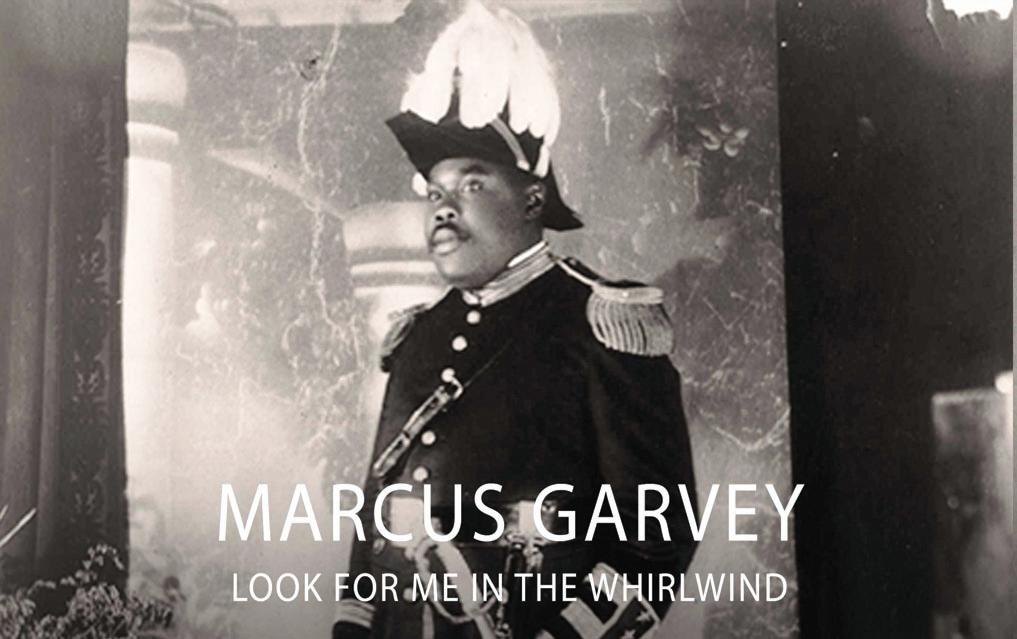
announcement as the “first step towards total exoneration, Carib News reported.
“As Prime Minister, I consider this clemency a first step toward the total exoneration and expungement of this historical injustice,” Holness said.
In 2018, Jamaica passed The National Heroes and Other Freedom Fighters (Absolution from Criminal Liability in Respect of Specified Acts) Act, which cleared the records of Jamaica’s National Heroes and freedom fighters who were wrongfully accused and convicted during their struggle for freedom.
“This legislative action reflects Jamaica’s unwavering commitment to preserving the honor and legacy of those who fought for justice and equality,” Holness said.
Biden, on Sunday said that Marcus Garvey was one of five people to receive a Presidential pardon.
The decision on Sunday from the outgoing Democratic leader follows sustained advocacy from several US lawmakers, including Democratic Congresswoman Yvette D. Clarke, who chairs the Congressional Black Caucus, Carib News said.




Clarke, the daughter of Jamaican immigrants and Brooklyn representative to Congress, called for Garvey’s exoneration, arguing the conviction was a result of governmental misconduct aimed at discrediting the influential civil rights leader. This posthumous pardon comes 101 years after Garvey was convicted of mail fraud in 1923 in a case marred by prosecutorial and governmental misconduct. He was sentenced to 5 years imprisonment – a sentence that was commuted by US President Calvin Coolidge in 1927, Carib News reported.
Garvey is credited as the first man to organize
a mass movement among African Americans. He was also the founder of the Black Star Line shipping company and the Pan-African United Negro Improvement Association (UNIA).
Gleaner writer Hinds reported that Alsion Wilson, Jamaica’s consul general in New York, said Biden’s decision was a monumental step in rectifying a grave historical injustice. She said Garvey’s legacy as a global advocate for Black pride, economic empowerment, and self-determination has inspired generations, and that the president’s action reaffirms the righteousness of his cause. Wilson said. “This is a victory not only for Jamaicans, but for all people around the world who have been influenced by Garvey’s vision of unity, progress, and uplifting. Today, we celebrate a long-overdue recognition of a leader whose contributions continue to shape our collective aspirations for justice and equality.”
Nzinga Garvey, granddaughter of Marcus Garvey, said his conviction was not only a miscarriage of justice but a reminder of how overreach of power can be weaponized to silence the voices of fairness, equity and accountability, Hinds reported.
“This posthumous pardon of Marcus Garvey is about more than his name. It is about reclaiming the soul of a nation that believes in fairness over fear, in dignity over division, in righting the wrongs of history so we can face the future with integrity. Let us prove that we are a nation not afraid to confront our past, because we believe so deeply in building a better future – for every one of us.
My grandfather’s conviction was not only a miscarriage of justice but a reminder of how the overreach of power can

be weaponised to silence the voices that seek fairness, equity and accountability. Marcus Garvey’s life was dedicated to uplifting humanity, urging us all to embrace a vision of justice that is larger than any single race or nation. His wrongful conviction is not just a story of the past, it is a reflection of the work that remains before us. It underscores the deep need for a justice system that protects, not prosecutes, those who dare to inspire and empower,” Nzinga Garvey said.
Insight looked further into Jamaica’s Gleaner archive and found a story entitled “Dr Martin Luther King honours Marcus Garvey” published:Friday June 24, 2022, recalling Dr. King’s visit in which he laid a wreath at Garvey’s shrine in the George VI Memorial Park on Tuesday, June 22, 1965.
The article said Dr King took time out of his busy schedule to honour the memory and works of Marcus Garvey and expressed his gratitude to Jamaica for producing such a hero for Black people.
The Gleaner reprinted its story on MLK’s visit which it originally published Wednesday, June 23, 1965. The original article was headlined: Garvey first to give Negroes a sense of dignity – King
Excerpts: “Marcus Garvey was the first man of colour in the history of the United States to lead and develop a mass movement. He was the first man on a mass scale and level to give millions to Negroes and
make the Negro feel he was somebody,” the Rev Dr Martin Luther King said at Marcus Garvey’s shrine in the George VI Memorial Park yesterday.
Dr King had just laid a wreath at the shrine in the presence of His Excellency the Governor General, Sir Clifford Campbell; the Hon Edwin Allen who is acting as prime minister, other prominent public figures, and a crowd of 2,000. He was giving a brief unscheduled speech before leaving for the north coast for a few days’ rest before returning to the United States.
“You gave Marcus Garvey to the United States of America,” Dr King said, “and he gave to the millions of Negroes in the United States a sense of manhood, a sense of somebodiness.”
“As we stand here, let us pledge ourselves to continue the struggle in this same spirit of somebodiness in the conviction that all God’s children are significant … that God’s Black children are just as significant as his white children. And we will not stop until we have freedom in all its dimensions.
“As I leave this marvellous city and the warmth of your reception, I say once more, thank you for this experience, thank you for the support that you are giving me in the things that I am trying to do in the United States, and thank you for your love for freedom and human dignity. And I say to you this morning, as I say all over America, we shall overcome because God is on our side.”
they include issues related to fraud reporting in state agencies, implementing fiscal management recommendations, returning some of a projected budget surplus to taxpayers, modifying the Read Act and prohibiting state-funded services to “undocumented noncitizens.” The first of the
House From 3 From
bills are scheduled to be heard in committees next week. Hortman said there aren’t any DFL-sponsored bills in the hopper because the House was adjourned Tuesday without a quorum and bills can’t be prefiled without a presiding officer.
The priorities’ announcement took place in Minneapolis because DFLers continue to stay away from the Capitol, with Hortman reiterating their stance that ongoing Republican proceedings in the House are a “sham.”
The DFL priorities include: Child care
The DFL plans to introduce legislation that would reduce the cost of child care and ensure that paid family and medical leave is protected.
“Making Minnesota the best place to raise a family means that ensuring everyone can put food on the table so no child goes hungry, making child care more affordable so that parents can work or go to school, and partnering with parents and caregivers to ensure
that every child in Minnesota is safe and supported as they grow,” said Rep. Carlie KotyzaWitthuhn (DFL-Eden Prairie). Republicans heard Thursday about concerns with paid family and medical leave and earned sick and safe time.
Health care
The DFL package includes expanding access to out-of-pocket caps on prescription drugs, including insulin, inhalers and EpiPens, increasing access to mental health care and addressing
hospitals’ reduction of services. “DFLers will prioritize people’s health and rein in the private profits of health care, insurance and drug companies that are harming and exploiting Minnesotans,” said Rep. Robert Bierman (DFLApple Valley).
Housing Young adults, young families and seniors are telling legislators that housing costs are too high and they’re right, said Rep. Michael Howard (DFLRichfield).
DFL members plan to introduce legislation that would spur construction of starter and affordable homes to rent. They also want to tackle problems with out-of-state corporations and hedge funds buying up homes in Minnesota and pricefixing schemes that landlords use to increase rents.
“House Democrats are ready to put Minnesotans, and not corporations, in the driver’s seat to find an affordable place called home,” Howard said.
The House Ways and Means Committee will be the largest, with 28 members, and is to be co-chaired by Rep. Paul Torkelson (R-Hanska) and Rep. Zack Stephenson (DFL-Coon Rapids).
3
The proposed suspension of refugee resettlement could disproportionately affect Black migrants from African and Caribbean nations who seek asylum in the U.S. Increased deportation operations targeting undocumented immigrants, including those with minor infractions, may further contribute to fears of racial profiling and discrimination in Black and immigrant communities. Additionally, deploying the military, including the National Guard,
From 3 From
highly inappropriate and wreaked of submissiveness.
March for MLK From 3
be a repeat of today’s swearingin history. A few months ago, some Kamala Harris
From 3
the order, calling it “an attack on economic opportunity for Black and minority communities.”
CBC Chair Yvette Clarke said the action “does nothing to help our communities grow economically or address the costs of living for hardworking American families.” Clarke connected the move to the Supreme Court’s recent decision to end race-conscious college admissions, stating, “This administration is dismantling tools that have opened doors to education and opportunity.”
Broad Condemnation from Advocates
Labor unions, civil rights organizations, and other groups responded with outrage. Everett Kelley, president of the American Federation of Government Employees, warned that eliminating DEI policies would harm both federal employees and the public they serve. “These programs promote fairness and build a federal government that reflects the diverse population it serves,” Kelley said. He also noted that DEI initiatives have contributed to narrowing gender and racial pay gaps. Dr. Andrea Abrams, executive director of the Defending American Values Coalition, called the executive order “an alarming assault on the core values of diversity and inclusion.” Abrams emphasized that DEI has been instrumental in driving innovation and economic growth by fostering workplaces that attract top talent. “By dismantling these efforts, the administration risks weakening our economy and setting our nation back for generations,” Abrams said.
The taxes (24 members), health (22 members), public safety (20 members), and commerce (20 members) committees also have large rosters while most of the others range from 12 to 18 members.
to the border raises concerns about the militarization of immigration enforcement. The designation of certain cartels as foreign terrorist organizations could lead to broader enforcement measures that risk overreach and collateral harm to immigrant populations, many of whom are Black.
Economic and Energy Policies Trump’s plan to “Make America Affordable and Energy Dominant Again” centers on reducing costs through expanded energy production and deregulation. While these measures aim to lower living expenses, they could have mixed consequences for Black Americans. Communities of color often
“Daddy is not home; Donald Trump is not our daddy. He’s the president of the United States. No matter who’s in the White House, they’re not daddy,” Chavis remarked with a decisive rebuke of the congressman.
campaign staffers believed the then-Democratic presidential candidate would have been sworn in today by Supreme Court Justice Ketanji Brown Jackson on this King Day. Since the 15th of this month, there have been many celebrations honoring the life and civil rights history of Dr.
SEIU International President April Verrett tied Trump’s actions to broader policies prioritizing the wealthy over working families. “This administration has made it clear that its priority is protecting the privileged few, not creating opportunities for everyday Americans,” Verrett said.
“We Will Not Back Down” Rev. Al Sharpton addressed the order at a Martin Luther King Jr. Day rally in Washington, D.C., warning corporations that abandoning DEI policies would lead to boycotts. “DEI was a remedy to the racial bigotry practiced in academia and corporations. If you want to put us back in the back of the bus, we’re going to do the Dr. KingRosa Parks on you,” Sharpton declared to a packed audience. Sharpton reminded listeners of the historical struggles for civil rights and warned that dismantling DEI programs would provoke a sustained fight. “You must have forgotten who we are. We are the ones that you took everything from, and we are still here,” he said.
Economic and Social Impact Advocates emphasized that DEI policies benefit everyone by promoting fairness and innovation. “Diversity is not a partisan issue,” Abrams said. “It strengthens democracy, ensures economic resilience, and gives everyone a fair chance to succeed.”
Critics warn that the executive order could reverse decades of progress. “Programs that promote an inclusive workforce ensure rules are applied fairly and help build a government that reflects the people it serves,” Kelley noted. Labor groups, civil rights leaders, and advocates have vowed to resist. “Our fight continues,” Verrett said. “We won’t back down.”

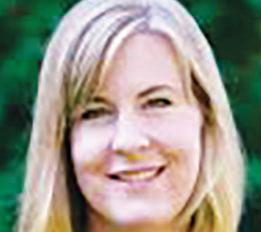


bear the brunt of environmental harm caused by deregulated industries and fossil fuel expansion, raising questions about long-term health and environmental justice. The administration’s withdrawal from the Paris Climate Accord and rejection of renewable energy investments could also slow progress in creating green jobs, an industry where Black workers have begun to gain traction.
Government Reform In his pledge to “Drain the Swamp,” Trump proposes freezing hiring in nonessential areas of the federal workforce, with a specific focus on reducing Diversity, Equity, and Inclusion (DEI)
“This shows another bending of the knee, another kissing of the ring when people need to be objective. Black people, in particular, should never stoop to being submissive to power,” he said. Journalist Ahmed Baba also responded
King. One was at Riverside Church in Harlem, New York Rev. Mark Thompson, host of “Make It Plain,” and NNPA Global Digital Transformation Director, remembered Dr.


initiatives. This could result in fewer opportunities for Black professionals and reduced attention to addressing systemic inequities in federal agencies. Plans to reduce remote work among federal employees could disproportionately affect Black workers, who often rely on flexible arrangements to manage systemic disparities such as longer commutes and caregiving responsibilities.
Social Policies Under “Bring Back American Values,” the president has vowed to uphold traditional gender definitions and push back against what he terms “radical gender ideology.” While the policy may resonate with some, critics
to the trend with alarm and embarrassment. “No amount of money or power is worth going on national television and calling Donald Trump ‘Daddy.’ I would spontaneously combust from embarrassment. I could never show my face
King by saying, “his memory calls us to transcend all of the things we are most concerned about today.” Dr. King, who was killed in 1968 by an assassin’s bullet, challenged
argue it risks undermining protections for LGBTQ+ individuals, including Black transgender and nonbinary people who already face high levels of discrimination and violence. Additionally, the administration’s promise to rename American landmarks to “appropriately honor” U.S. history raises concerns about erasing the recognition of Black leaders and historical figures in public spaces.
Implications for Black Americans
Trump’s America First agenda presents a mix of challenges for Black communities. Policies targeting immigration, environmental regulations, and government
in public again. I would exile myself in the Himalayas; this is flabbergasting,” Baba commented. David Ryan Miller, an associate professor at American University, joined in the critique, noting that Donald’s’comment contradicts
reform could exacerbate existing inequities, while the rollback of DEI programs threatens to stall progress toward racial justice. As the administration prepares to implement these policies, the impact on Black Americans will depend on how federal and state agencies carry out the president’s vision. Critics warn that many of these proposals risk further marginalizing Black communities in an era of increasing social and economic disparities. “No administration can ignore the lasting impact of its policies on communities already fighting systemic barriers,” a civil rights advocate said.
the alpha male image promoted by Trump’s supporters. “Don’t all of the Trumpists aspire to be alpha males? Is there anything more beta than referring to another man as ‘daddy’?” Miller questioned.
authority at the highest levels to achieve equality for African Americans in this nation like voting rights and civil rights. Thompson warns in this new political era, “rather than relax or be discouraged we should… continue to hold the Office of the President accountable.”
Saturday, February 8, 2025, 10am-3pm Galaxie Library 14955 Galaxie Avenue, Apple Valley, MN 55124
From the Page to the Stage Meet & Greet Authors BUY BOOKS! Author Panel Discussions Conversations with Authors
Writers Bootcamp
Learn the Tricks of the Publishing World For Emerging and Established Writers Time: 10am-12pm | Cost: FREE Register at: mnblackauthorsexpo.com or (203) 524-0223
Teen Creative Writing Workshop
Calling ALL TEENS Adults with Child-like Imaginations! Time: 11am-12pm Cost: FREE
Kids Corner
Fun-filled Activities Coloring Contest! Children’s Author Readings




FREE AND OPEN TO THE PUBLIC | BOOK GIVEAWAYS
mnblackauthorsexpo.com | 203-524-0223













By National Head Start Association
As we mark Dr. Martin Luther King Jr. Day, we recall what he said about education:
“The richest nation on Earth has never allocated enough resources to build sufficient schools, to compensate adequately its teachers, and to surround them with the prestige our work justifies. We squander funds on highways, on the frenetic pursuit of recreation, on the overabundance of overkill armament, but we pauperize education.” We also highlight early childhood education success stories. For instance, the National Head Start Association recognized Natalie Hankins with its Aubrey Puckett Memorial Award for demonstrating passion for and commitment and engagement to serving through advocacy— as both a current staff member and a Head Start alumna.
Ms. Hankins attended Head Start as a child in 1967.
She remembers being a child who cried often but found comfort in her teachers. She vividly recalls the activities that helped her: finger painting, reading books, singing songs, and her nurturing teacher Mrs. Katherine Culp. “Head Start was a great start for me, on all levels,” says Ms. Hankins. “It was a great start for my education journey. Being a Head Start child instilled in me a strong desire to learn that I’ve always kept with me. Both of my grandmothers were educators and education advocates. It was only natural for me to follow their lead and improve myself through education.”
Ms. Hankins embodies the spirit and culture of Head Start. She obtained her Bachelor of Science degree in Social Work, followed by her master’s in education, and has been working for the Institute of Community Services for over 24 years. She began as an outreach worker and is currently the parent advocate educator. She coordinates with center
directors to facilitate parentchild events, parent committee meetings, implementation of parent curriculum, recruit policy council members, track parental engagement, and continuously measure efforts. She has rallied at both state and national levels advocating for Head Start funding, encouraged and empowered parents to complete their voter registration, and led other enriching activities for children and families such as the Salvation Army Angel Tree and Stuff the Bus in her community. When Ms. Hankins had her first child, she and her husband decided to enroll him in Head Start. Before his enrollment, her son had trouble with the alphabet. After attending the B.I. Whitaker Head Start of Byhalia, MS, Ms. Hankins recalls experiencing a drastic transformation, “like a light bulb came on.” Her son is now an electrical engineer, and her daughter is a clinical pharmacy specialist for the U.S. Department of Veterans Affairs. “It feels like a full circle

moment doing what I do for a living,” stated Ms. Hankins. “I remember enjoying learning at Head Start as a child. That’s why I believed in Head Start
Trump won’t ban immigration arrests at school
By Olga R. Rodriguez, Moriah Balingit, Bianca Vazquez Toness and Jocelyn Gecker Associated Press
As President Donald Trump cracks down on immigrants in the U.S. illegally, some families are wondering if it is safe to send their children to school.
In many districts, educators have sought to reassure immigrant parents that schools are safe places for their kids, despite the president’s campaign pledge to carry out mass deportations.
But fears intensified for some when the Trump administration announced Tuesday it would allow federal immigration agencies to make arrests at schools, churches and hospitals, ending a policy that had been in effect since 2011.
“Oh, dear God!
I can’t imagine why they would do that,” said Carmen, an immigrant from Mexico, after hearing that the Trump administration had rescinded the policy against arrests in “sensitive locations.”
She took her two grandchildren, ages 6 and 4, to their school Wednesday in the San Francisco Bay Area after school officials assured her it is
safe.
“What has helped calm my nerves is knowing that the school stands with us and promised to inform us if it’s not safe at school,” said Carmen, who spoke on condition that only her first name be used, out of fear she could be targeted by immigration officials.
Immigrants across the country have been anxious about Trump’s pledge to deport millions of people. While fears of raids did not come to pass on the administration’s first day, rapid changes on immigration policy have left many confused and uncertain about their future.
At a time when many migrant families — even those in the country legally — are assessing whether and how to go about in public, many school systems are watching for effects on student attendance. Several schools said they were fielding calls from worried parents about rumors that immigration agents would try to enter schools, but it was too early to tell whether large numbers of families are keeping their children home.
Missing school can deprive students of more than learning. For students from low-income families, including many immigrants, schools are a primary way to access food, mental health services and other
to support my child. Then, I really enjoyed the training topics for Head Start parents; they motivated me to be so engaged. Now, I do the same for other

support. Tuesday’s move to clear the way for arrests at schools reverses guidance that restricted two federal agencies — Immigration and Customs Enforcement and Customs and Border Protection — from carrying out enforcement in sensitive locations. In a statement, the Department of Homeland Security said: “Criminals will no longer be able to hide in America’s schools and churches to avoid arrest.”
Daniela Anello, who heads D.C. Bilingual Public Charter School in the nation’s capital, said she was shocked by
the announcement.
“It’s horrific,” Anello said. “There’s no such thing as hiding anyone. It doesn’t happen, hasn’t happened. ... It’s ridiculous.”
An estimated 733,000 school-aged children are in the U.S. illegally, according to the Migration Policy Institute. Many more have U.S. citizenship but have parents who are in the country illegally.
Schools work to reassure parents
Education officials in some states and districts have vowed to stand up for immigrant students, including their right to a public education. In California,

for one, officials have offered guidance to schools on state law limiting local participation in immigration enforcement. A resolution passed by Chicago Public Schools’ Board of Education in November said schools would not assist ICE in enforcing immigration law. Agents would not be allowed into schools without a criminal warrant, it said. And New York City principals last month were reminded by the district of policies including one against collecting information on a student’s immigration status. That’s not the case everywhere. Many districts have not offered any reassurances for immigrant families.
Educators at Georgia Fugees Academy Charter School have learned even students and families in the country legally are intimidated by Trump’s wide-ranging proposals to deport millions of immigrants and roll back noncitizens’ rights.
“They’re not even at risk of deportation and they’re still scared,” Chief Operating Officer Luma Mufleh said.
Officials at the small Atlanta charter school focused on serving refugees and immigrants expected so many students to miss school the day after Trump took office that educators accelerated the school’s exam schedule so students wouldn’t miss important tests.
Asked on Tuesday for attendance data, school officials did not feel comfortable sharing it. “We don’t want our school to be targeted,” Mufleh said. The new policy on immigration enforcement at schools likely will prompt some immigrant parents who fear deportation to keep their children home, even if they face little risk, said Michael Lukens, executive director for the Amica Center for Immigrant Rights. He said he believes it’s part of the administration’s goal to make life so untenable that immigrants eventually leave the United States on their own.
While many U.S.
adults are on board with the idea of undertaking some targeted deportations, a shift toward arresting people in the country illegally at places like schools would be highly unpopular, according to a survey from The Associated Press-NORC Center for Public Affairs Research. It found only about 2 in 10 U.S. adults somewhat or strongly favor arresting children who are in the country illegally while they are at school.
Some parents see school as one of the last safe places
For Iris Gonzalez in Boston, schools seem like just about the only safe place for her to go as someone in the country illegally. She’s had children in Boston schools for nearly a decade and she doesn’t expect anyone there to bother her or her daughters for proof they’re here legally. So her children will keep going to school. “Education is important,” she said in Spanish.
Gonzalez, who came to the U.S. from Guatemala illegally 14 years ago, does worry about entering a courthouse or driving, even though she has a license. “What if they stop me?” she wonders.
“I don’t sleep,” she said. “There’s a lot of uncertainty about how to look for work, whether to keep driving and what’s going to change.”
Carmen, the Mexican grandmother who now lives in California, said returning home is not an option for her family, which faced threats after her son-in-law was kidnapped two years from their home in Michoacan state, an area overrun with drug trafficking gangs.
Her family arrived two years ago under former President Joe Biden’s program allowing asylum-seekers to enter the U.S. and then apply for permission to stay. Following his inauguration Monday, Trump promptly shut down the CBP One app that processed these and other arrivals and has promised to “end asylum” during his presidency. Carmen has had several hearings on her asylum request, which has not yet been granted.
“My biggest fear is that we don’t have anywhere to go back to,” she said. “It’s about saving our lives. And protecting our children.”
The Associated Press’ education coverage receives financial support from multiple private foundations. AP is solely responsible for all content. Find AP’s standards for working with philanthropies, a list of supporters and funded coverage areas at AP.org.
By Britt Robson MinnPost
Up here in the frozen tundra of Minnesota, we have an intimate relationship with the concept of traction.
When the wheels find purchase in the slush, gravel or ice, and you’re lurching out of the deepening hole you’ve painstakingly dug for yourself, or re-hugging the curve for your suddenly dear life after the adrenaline jolt of an abrupt careen, a sense of reliability, security and glorious normality returns like a séance of endorphins.
One of the many bountiful pleasures brought by the 2023-24 Minnesota Timberwolves was the omnipresence of their traction. Two weeks into the season, they had already knocked off titans like the reigning champion Denver Nuggets and the soon-to-be champion Boston Celtics, while serving what became a season-long notice that their defense would be without parallel in the NBA. Within the first month their record was 11-3. Their first two-game losing streak was in the next calendar year and they never lost three in a row while winning 56 of 82 regular season contests – followed by their first two playoff series triumphs in 20 years.
On Friday night, the 2024-25 Minnesota Timberwolves will reach the midpoint of their season; one that has become increasingly annoying for its proclivity of skids and spinning wheels. It is a vehicle that Head Coach Chris Finch has trusted too much, opting for the patient, drivereverse-drive rocking strategy that makes agonizingly fitful progress as the hole extends but never seems to cede. When finally underway for a while, the team enters the curves with careless arrogance, compelling Finch to turn into the inevitable skid, the right short-term strategy that still makes all involved skitterish that it had to be deployed in the first place.
A couple of weeks ago, just before the Wolves won their third straight game by beating the San Antonio Spurs, Finch acknowledged that where the 2023-24 team had rapidly “settled into a rhythm,” the current campaign was revealing “more of a learning curve” for his squad. The Wolves then proceeded to ratify his caution
By Josh Dubow AP Pro Football Writer
The near annual playoff matchups between Patrick Mahomes and Josh Allen are hardly unprecedented.
The one-sided nature of the postseason rivalry between the two star quarterbacks is more unusual.
Mahomes’ Kansas City Chiefs will host Allen and the Buffalo Bills in the AFC title game on Sunday night for the fourth postseason matchup between the QBs in the past five seasons.
Mahomes has come out on top in the first three, winning the 2020 AFC title game and 2021 divisional round matchup at home and then a divisional rounder last season in Buffalo.
Mahomes and Allen are the fifth set of quarterbacks to start against each other at least four times in the postseason, with most of the others being fairly even.
The Patriots’ Tom Brady won his first two playoff matchups against Peyton Manning before losing the final three in the only QB rivalry with five postseason meetings.
Brady split four matchups with Baltimore’s Joe Flacco, with the Patriots and Ravens alternating wins in those games that came in a span of six seasons.
Oakland’s Ken Stabler won his first and fourth
playoff starts in four seasons against Pittsburgh’s Terry
by losing three in a row for the fourth time in 35 games.
Finch resorted to his first significant lineup shift of the season, installing Donte DiVincenzo over Mike Conley as the starting point guard, and the Wolves responded with four wins in five games heading into Wednesday night against Golden State Warriors at Target Center Wednesday night.
Before the game, I asked Finch whether he felt the team could generate enough traction to justify the NBA’s second-highest payroll and the equally elevated expectations in the wake of last year’s excellence.
“I think so,” he replied. “When I think back about some previous seasons and you’re .500 and then you kind of hit a spurt and everything changes. But in answer to your question I think we do see traction.”
Then the Wolves went out and got blitzed, 34-12, in the first quarter, giving up as many points via five turnovers and the team scored itself. Although they rallied – even tying the score with 1:07 left in the game – they were done in on some muffed layups, the majesty of Steph Curry as a closer, and a Golden State rebound off a missed free throw that essentially iced the game as a one-point Wolves loss.
Finch bemoaned the start, of course, and the fact that a team that hangs its hat on playing “big” was outrebounded by a smaller, vastly inexperienced frontcourt, especially secondyear center Trayce JacksonDavis and G-league call-up Gui Santos as the starters for the depleted Warriors roster. It didn’t matter that Minnesota scored 103 points in the ensuing three quarters.
“It took us too long to find that gear,” Finch said matter-offactly. “I didn’t think we were out there working very hard. We wanted it to come easy.”
Asked why that was, Finch retained an even tone as he indicted the team.
“I don’t know. We struggled to complete some plays. They got out to a hot start shooting-wise and we tried to get it all back with one quick pass and shot. Again not willing to put the work in offensively. We’ve had a habit of that all season,” said Finch, who then repeated, “We just want it easy.”
The record is now 21-19, with a pair of rugged games on the horizon – in New York against a Knicks
Bradshaw but lost the two in the middle. Stabler also came off the bench in the 1972 divisional round matchup and scored on a go-ahead TD run with 1:17 to play before Bradshaw and the Steelers won with the “ Immaculate Reception “ pass to Franco Harris for a gamewinning 60-yard TD pass.
The only other matchup that started so onesided came in the 1990s when Green Bay’s Brett Favre won his first three playoff games against Steve Young and the 49ers before San Francisco responded with “The Catch II” and a game-winning 25-yard TD pass from Young to Terrell Owens in a 1998 wild-card game.
Favre added one more playoff win over San Francisco with Jeff Garcia at QB and is one of two QBs to beat the same opponent four times in the postseason, with Brady holding a 4-1 record against the Colts.
Mahomes can join them on Sunday with a fourth playoff win against Buffalo. A loss would tie Allen with Aaron Rodgers (0-4 against San Francisco) for the most defeats against one opponent in the playoffs.
Sensational Saquon
The Los Angeles Rams seem to bring out the best in Saquon Barkley. Barkley followed up his 255-yard rushing performance in the regular season against the Rams with a franchise playoff-record 205 in Philadelphia’s 28-22 win on Sunday, putting Barkley in

USA TODAY Sports via Reuters Connect
Timberwolves forward Julius Randle, right, dribbling past Golden State Warriors forward Trayce Jackson-Davis in the first half at Target Center on Wednesday.
team that walloped them in their previous meeting this season, and home against a Cleveland Cavs squad that has the best record in the NBA.
By now we know there will be no meaningful traction. Certainly not enough to rekindle the hopes and foster the synergy displayed for almost the entirety of last season.
A game away from the halfway mark, it is time for some harsh truths. Here are a couple.
The relationship between the Timberwolves franchise and power forward Julius Randle will have an unhappy ending Randle was never the main focus of the deal that brought him to Minnesota just before training camp. There were myriad motivations for the trade made with the New York Knicks by Wolves President of Basketball Operations Tim Connelly.
He wanted to acquire a point guard who could serve as a bridge between veteran point guard Mike Conley and 2024 first round draft pick Rob Dillingham, and Donte DiVincenzo perfectly fit that need at the bargain basement salary of $12 million per year over the next three seasons.
He needed to get off of the enormous long-term “supermax” contract of thenWolves star Karl-Anthony Towns or almost certainly lose the younger Naz Reid, the reigning Sixth Man of the Year, due to salary cap constraints.
He wanted to get back a first-round draft pick after expending so much draft capital in the Rudy Gobert trade three seasons ago, and the Knicks had one to spare via the Detroit Pistons. And he needed to acquire Randle to keep up the
some rare territory.
Barkley had the fifthmost rushing yards ever in a playoff game and broke the Eagles mark of 195 set by Steve Van Buren against the Rams in the 1949 NFL title game. He did it thanks to big plays, with a 62-yard TD run in the first quarter and a 78-yarder in the fourth, giving him an NFL-record six touchdown runs of at least 60 yards this season, including four in the two games against the Rams. Barkley finished with 460 yards against Los Angeles this season. There have been only four other times that one player ran for more than 430 yards against an opponent in a single season, playoffs included.
Adrian Peterson has the most, with 508 yards in three games against Green Bay in 2012, followed by Jamal Lewis with 500 against Cleveland in 2003, O.J. Simpson with 469 versus New England in 1973 and Derrick Henry with 462 against Houston in 2020.
Barkley needs 135 yards on Sunday against Washington to join that group for a second time after rushing for 296 yards in the first two meetings against the Commanders.
Quality Quinn Coach Dan Quinn has helped engineer an impressive turnaround in Washington. Quinn took over a team that finished tied for the second-worst record in the NFL last season at 4-13 and helped the Commanders make it all the way to the NFC title game.
ceiling and a style of play and longstanding camaraderie that fits with Ant, the alpha force in the future of the franchise.
The hope is that Randle plays well enough to garner a decent return on the trade market, either by the Feb. 6 trade deadline or in the offseason. The Wolves – and, to be fair, Randle – have expended a lot of time and energy trying to integrate him in a manner that bolsters the current team and brightens his future elsewhere. But that is becoming a gulf too far and the status quo is increasingly becoming a damaging prospect for both sides.
Wolves identity for rugged frontcourt performance, and, more pertinently, to make the collective salaries on both sides match enough to facilitate the deal. In terms of pure skills and experience, Randle is one of the three or four best players on the team. But the only thing remaining on his current contract is a player option for next season at $31 million. He needs to perform well enough with the Wolves to entice a team to sign him for at least that much money over multiple years. That team will not be the Wolves – their priority is Naz, who has a $15 million player option himself for next season that would nearly double on the free agent market.
But if Randle opts in for next season, the Wolves are obligated to keep him at that $31 million, complicating efforts to re-sign Naz and hopefully Nickeil AlexanderWalker (NAW), another key member of the rotation.
The situation is tailormade for friction and inevitable acrimony, but Finch and Randle had a mutual admiration for each other when Finch coached him in New Orleans six years ago, and both sides have worked very hard and acted very professionally to meet each other’s needs. But that is very unlikely in the long run. Randle does not fit in a lineup that already has an isolation scorer in Anthony Edwards and a space-clogging big man in Rudy Gobert. His virtues involve a lot of ball possession and the Wolves offense can’t afford those touches. More to the point, the Wolves won’t choose even a maximized Randle, age 30, over the 25-year old Naz, who has the higher future
With a win Sunday at Philadelphia, Quinn would become the ninth coach to make the Super Bowl in his first full season on the job and the first to do it after taking over a team with a losing record. Four of those firstyear coaches won the Super Bowl, with Gary Kubiak doing it in Denver in the 2015 season, Jon Gruden in Tampa Bay in 2002, George Seifert for San Francisco in 1989 and Don McCafferty for the Baltimore Colts in 1970. This is the second time Quinn has taken a team to this stage of the playoffs, losing a Super Bowl as head coach for Atlanta in the 2016 season. He is the 13th coach since the 1970 AFL-NFL merger to go to the conference title game with at least two teams and could become the eighth coach to take two franchises to a Super Bowl.
Dallas’ drought With Quinn leading Washington to its first conference title game appearance in 33 years, that means 15 of the 16 teams in the NFC have made it to this stage in the last 15 seasons. The lone exception?
The five-time Super Bowl champion Dallas Cowboys. Dallas last played in the NFC championship game in the 1995 season on the way to winning a third Super Bowl in four seasons. The once-proud franchise known as America’s Team has fallen short of that stage for 29 straight seasons despite being tied for the 10thmost playoff trips in that span
(For the record, after a slow start, DiVincenzo is performing brilliantly, and the Pistons have improved enough this season to make the protections on their draft pick less likely to be implemented, clearing the way for the Wolves to add another young piece. Trading KAT obviously was a bigger blow to the Wolves than originally supposed, but it does still create cap space for a Naz extension and maybe a chance to retain NAW too.)
Finch needs a more authoritarian voice or a new offensive philosophy As someone who has covered the Wolves since their second season of existence, I am in a good position to hold the opinion that Finch is the best coach in franchise history. His strength is player-relations, via direct but not inflammatory communications skills and a supposed inclination to build his schematic approach around the strengths of his roster.
But something has been amiss on offense throughout his three-and-ahalf-year tenure. Finch prefers a “flow” offense, an ostensibly player-friendly philosophy that functions best under three basic principles: move the ball, move yourself when you don’t have the ball and make quick decisions.
But Ant – remember, the alpha force of all plans for the present and future – too frequently eschews all of those basic principles. That has not always been the case – peak Ant in “flow” mode may well have been a stretch beginning in December 2022 and January 2023 when KAT was injured, Conley had not yet arrived, and he balanced play-making and scoring in a glorious ascendance that led to his first All Star game appearance. And it was furthered
under Conley’s tutelage. But as Ant has become a superstar and “face of the league,” he has faced enormous pressures, be it opposing defenses stacked to deter him, the heightened scrutiny of the gluttonous, gossipy media or the judgments of his former heroes both active and retired from the NBA. Put bluntly, Ant’s maturation hasn’t kept pace with the sharper arc of his learning curve this season. His incredible three-point shooting has camouflaged his more subtle shortcomings, which frequently sabotage the “flow” via impetuous shot selection in the face of rugged resistance, lazy ball movement, and precious little movement himself off the ball. Led by Ant (and Randle), the Wolves have a roster of proven scorers and have no business ranking 17th in offensive efficiency (points scored per possession). But here’s why that’s where they stand: Only five teams use “isolation” plays as a larger percentage of their offensive mix than the Wolves, and yet only five teams score fewer points per isolation play than the Wolves’ putrid mark of .79 points per play. The low-hanging fruit of a competent “flow” offense is meanwhile unpicked. The Wolves defense ranks 13th in the number of turnovers it generates, yet the team is 30th, dead last, in percentage of “transition” plays in its offensive mix, scoring 12th most points per play (1.14) when they do get out and run after a steal or block. And as for “cuts” to the basket, they do it with the 24th highest frequency and yet the 13th best success rate. Finch needs to exert a heavier hand on how his team executes his offensive principles, or acknowledge (if he hasn’t de facto done that already) that his players choose to do otherwise and then lean into strategies that better exploit their natural instincts. (In the And One newsletter – two harsh truths: Expanding the rotation and resetting expectations for the postseason.)
Britt Robson Britt Robson has covered the Timberwolves since 1990 for City Pages, The Rake, SportsIllustrated.com and The Athletic. He also has written about all forms and styles of music for over 30 years.

with 13. There are three AFC teams that haven’t made the conference title game since 1995, with Miami making its last trip in the 1992 season, Cleveland in 1989 and Houston never making it since becoming an expansion team in 2002. The Texans fell to 0-6 in the divisional round with the loss on Saturday at Kansas City.
Division flop The NFC North dominated the regular season, with three teams winning at least 11 games and the .750 winning percentage in non-division games tying for the second-best mark of any division since the 1970 merger. That success didn’t carry over to the playoffs, with Minnesota and Green Bay losing in the wild-card round and the NFC’s top seed, Detroit, losing its playoff opener to Washington in the divisional round. Those three teams had gone 29-4 in the regular season against non-division opponents. There had been 34 times since the merger when three teams from a division made the playoffs —











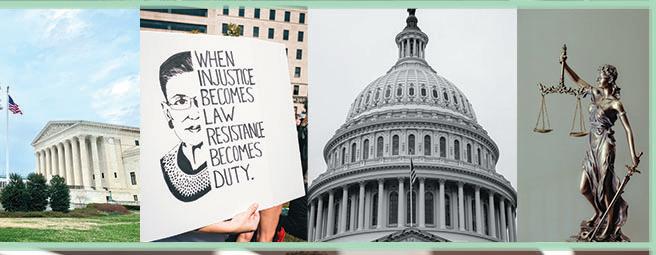




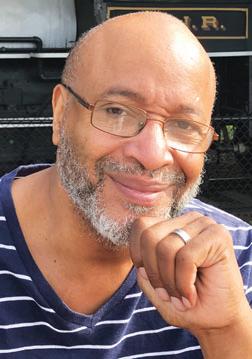
By W.D. Foster-Graham Book Review Editor
FINDING THE VOICE WITHIN
A Collection of Black Women’s Voices
(Forward by Elder Semerit Seankh-Ka Strachan and Sister Comfort Dondo)
By the Aya Collective
When I was given the honor and opportunity to write my column, I was intentional about the name: Sharing Our Stories. In my opinion, everyone has a story inside them; however, not everyone commits their story to print. These days, as African Americans and African-born, it is more imperative that we document our stories for the present and future generations. As a colleague of mine once said, “If we don’t, someone else will, and it may not be accurate.”
We are descended from kings and queens, and our lives matter. We refuse to allow them to be discounted, dismissed, or erased, especially when it to Black women. That being said, I bring to you the Aya Collective anthology Finding the Voice Within: A Collection of Black Women’s Voices.



First, I want to acknowledge the voices of the women who contributed to this anthology: Maya J. Mason, Jameelah Crawford, Holly Fidler, Denise Walker, Elder Semerit Seankh-Ka Strachan, Sister Comfort Dondo, Ayolanda Mack, Theresa Thompson Nix, Pamela Fletcher Bush, Sister Peace, Joy Marsh, Jean Loyd, Amoke Kubat, Jaralyn Roberts, and Ebony Aya, founder of the Aya Collective.
The stories in this anthology speak of the diverse experiences of the women as Black girls who have grown to become Black women, memories of their elders, their ambitions in the present, generational curses, supernatural gifts, good and bad relationships, family secrets, reclamation, growth, resilience. Meditation moments are included at the end of each story to encourage and empower. The common thread of all the






narratives is the moment when each finds that inner voice, the one that strengthens and perseveres. Does this book sugarcoat pain, grief, loss, injustice? No. Does it recognize accountability for the choices made? Indeed. Does it speak truth, healing, wisdom, affirmation, validation, and internal strength in spite of external trials and tribulations? Most definitely. These are voices that refuse to be silenced. One of the good things about sharing stories is that we can have similar experiences and yet bring our own unique perspective to those





experiences. I must give a hat tip to Ebony Aya, the founder of the Aya Collective. In her words, “The Aya Collective is an intentional space that focuses on Black women writing in community with each other, centering our spiritual and cultural practices.” Thank you and Strive Publishing for bringing this book to fruition. Finding the Voice Within is available through Amazon and Strive Publishing. Thank you, Ebony, for bringing us more unique voices of our queens!














Bird fl
again in Michigan poultry – an infectious disease expert explains the risk to humans, chickens, cows and other animals
By Kimberly Dodd Dean of College of Veterinary Medicine, Michigan State University
After a relatively quiet fall, there’s been another spike in cases of bird flu in Michigan.
When state officials announced on Dec. 16, 2024, that bird flu had been found in another poultry facility in Ottawa County, it was the first time the H5N1 virus had been detected in Michigan poultry in over six months. Since then, the U.S. Department of Agriculture has confirmed seven more outbreaks – in five commercial and two backyard flocks – in the state, the most recent in Oakland County.
Meanwhile, on Jan. 6, 2025, the Centers for Disease Control and Prevention reported the first human death from bird
flu in the U.S., in Louisiana.
Bird flu is a complex and evolving disease with significant impact to the poultry and dairy industries. Since the beginning of the outbreaks in poultry and cattle, almost 135 million birds and more than 900 cattle herds have been affected nationwide. A significant number of wild animals – such as raccoon, skunks, foxes and bobcats – as well as marine mammals and domestic cats have also died from the virus.
Kimberly Dodd, dean of Michigan State University’s College of Veterinary Medicine, is an expert in outbreak response for emerging infectious diseases. Michigan was among the first states to see
H5N1 outbreaks in commercial poultry and dairy facilities. Both state and federal officials have worked closely with the Michigan State University Veterinary Diagnostic Laboratory to identify newly infected herds, while continuing to provide surveillance for the virus in poultry and wild birds.
Dodd talked to The Conversation U.S. about the risks H5N1 presents to families, pets and livestock, and how researchers are working together to find ways to limit its spread.
What are Michigan researchers learning about the outbreak?
In the case of H5N1 in cows, scientists and animal health experts here in Michigan and around the country are working to understand a familiar disease in a novel species.
The transmission of the avian flu virus H5N1 to dairy cattle was first confirmed in March 2024 in Texas and has since spread to 15 other U.S. states, most recently California.
The virus impacts milk production and poses significant risks to other bird species, particularly domestic poultry as well as some mammals. The CDC has also confirmed mild cases in humans, and a fatal one in Louisiana in January 2025.
Diagnosticians at Michigan State University and the USDA’s National Animal Health Laboratory Network provide rapid diagnostics to identify infected herds and monitor the virus in wild birds and mammals, helping control the spread.

We’ve learned, based on sequencing the circulating viruses, that there is a specific virus strain or H5N1 genotype, B3.13, circulating in cows and poultry. Subtle changes over time in the genetic makeup of the virus points to a single spillover event. This means the virus likely spread from wild birds to a cow in Texas, and then spread from cow to cow. We also know that there is a separate H5N1 genotype, D1.1, that is currently circulating in wild birds and domestic poultry. Researchers in our College of Veterinary Medicine are working with federal and state officials and farmers to determine how long cows produce infectious milk. The goal is to understand how cows are becoming infected within and across herds so that we can

better mitigate the spread.
Why is it called bird flu if it sickens other animals too?
Influenza viruses affect many animals including humans, pigs, dogs and horses. There are four types of influenza viruses: A, B, C and D, which are loosely defined by the species they can infect. Avian influenza viruses are considered influenza A viruses. Interestingly, influenza D viruses are the ones that primarily infect cattle. But the current H5N1 circulating in dairy cattle is the same influenza A virus as seen in the ongoing outbreak in birds.
This is of particular concern, as only influenza A viruses have been associated with human pandemics.
Avian influenza viruses circulate in wild birds but don’t typically cause them significant disease. While many avian influenza viruses can infect poultry, their behavior in those hosts classifies the virus as either highly pathogenic or low pathogenic. It’s important to note that this classification doesn’t necessarily indicate how easily it spreads or the likelihood that the virus will jump to other species.
The currently circulating strain is classified as highly pathogenic avian influenza, or HPAI, based on the high mortality it causes domestic poultry. One of the many unusual characteristics of the current outbreak is the high mortality seen in wild birds; as a result, we have seen many species of young carnivores and scavengers infected by the virus.
Infection in other species often requires exposure to a large amount of virus, or a compromised or underdeveloped immune system. These are typically “dead-end hosts.” They become infected but do not play a role in virus spread because either the animal dies or it becomes infected but not infectious.
The current outbreak of HPAI H5N1 has been ongoing since 2021. The outbreak is notable for its duration, wide geographic spread and unusual impact on nonpoultry species as well. It has caused significant illness and death in wild birds like ducks and geese, as well as mammals exposed to infected bird carcasses like cats and skunks.
However when the USDA unexpectedly confirmed that H5N1 was the cause of significant disease in dairy cattle in early 2024, it marked the first time that the virus was detected in U.S. dairy cattle. What does the virus do to cattle?
Most cows infected with H5N1 recover on their own without treatment. Symptoms include fever and sluggishness. There is also decreased appetite and a significant drop in milk production in lactating cows, as the virus is concentrated in the mammary glands and milk.
There are three reasons to care about the ongoing H5N1 outbreak in dairy cattle:
First, the drop in milk production and the virus’s infectious nature create challenges for farmers to control the infection and lead
to economic losses. In addition to the production losses, there are additional labor and supply costs to manage the outbreak in the herd, including separation and supportive care of sick cows. Workers also need to use personal protective equipment to prevent spread of the virus to healthy animals and to protect themselves from potential infection.
Second, dairy cows produce large amounts of the virus in milk, which is highly infectious. While pasteurization kills the virus, raw milk remains a major infection risk. Significant numbers of wild mammals and domestic cats on dairy farms have died from the virus after consuming raw milk. It also poses a risk to dairy workers. The virus has also spread from dairy farms to poultry facilities, causing high bird mortality. Experts are exploring the possibility that clothing, shoes, trucks, equipment and other items that have been contaminated with raw milk containing the virus can lead to inadvertent, and lethal, exposure for poultry. Third, prolonged circulation in cattle increases the risk of the virus adapting to mammals, including humans.
To monitor this risk, all H5N1-positive samples are sent to the USDA for genetic sequencing to identify mutations that may increase the virus’s ability to infect mammals and to provide important information about how the virus spreads within and between populations. How do we manage H5N1 moving forward?
Biosecurity for poultry and dairy facilities is more critical than ever. Biosecurity measures include limiting visitors to farms and facilities; disinfecting tools, footwear and equipment; avoiding contact between infected and noninfected species; and isolating sick animals.
These measures play an important role in both containing the virus and keeping it away from other animals, properties and people. Kimberly Dodd receives funding from the United States Department of Agriculture (USDA) Animal and Plant Health Inspection Service (APHIS). This article is republished from The Conversation under a Creative Commons license.









































































































































































